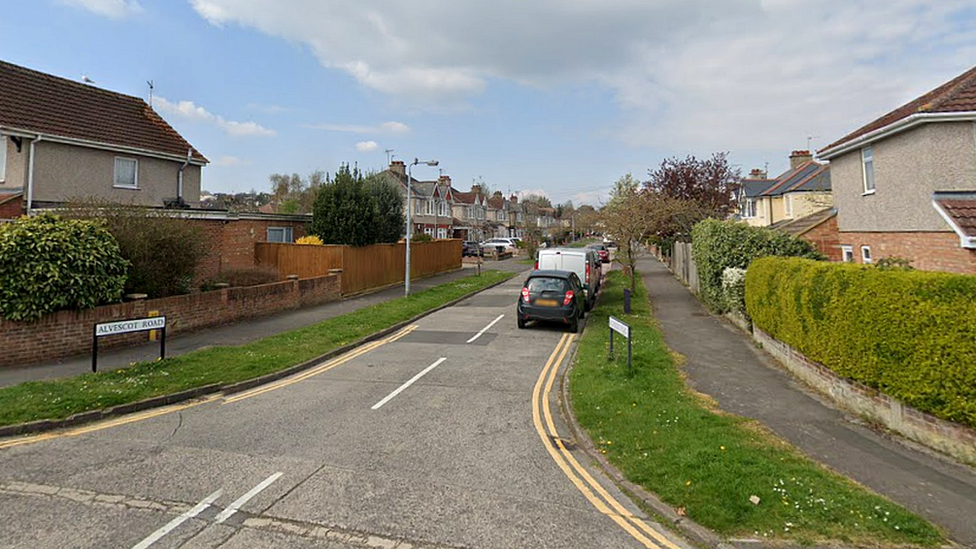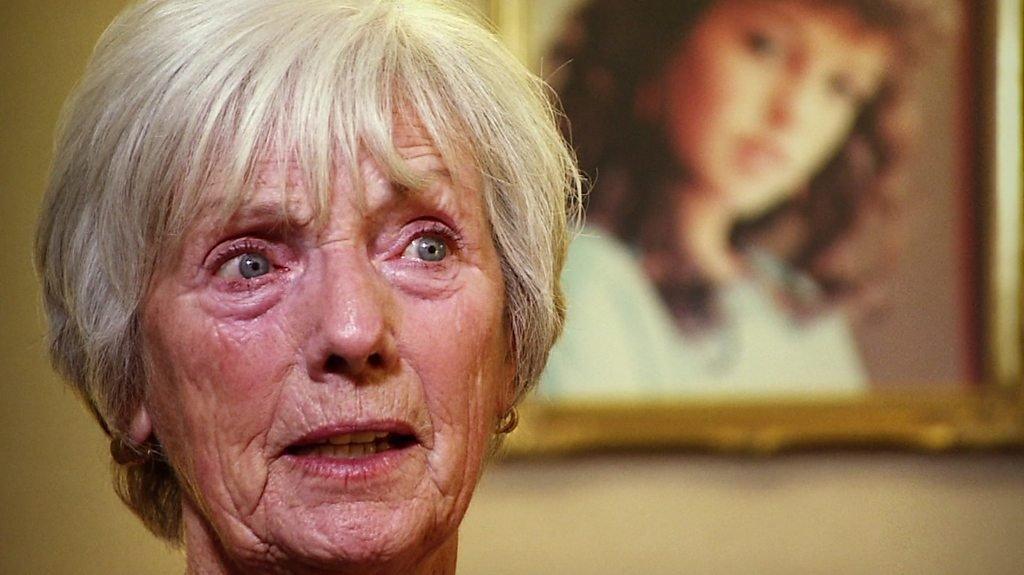Linda Razzell: Killer husband refused parole under Helen's law
- Published

Glyn Razzell was found guilty of his wife's murder at a trial in 2003
A man who has refused to reveal where the body of his murdered wife is has had his parole bid turned down under a new law.
Glyn Razzell, from Somerset, is serving a life sentence for the murder of his 41-year-old wife Linda Razzell.
Under Helen's Law, it is harder for killers to get parole if they refuse to reveal where their victim's bodies are.
Razzell is one of the first prisoners to be considered under the law, which was enacted in January.

Linda Razzell, originally from Carmarthenshire, disappeared in 2002 and her body has never been found
Glyn and Linda Razzell were involved in divorce proceedings when she went missing on her way to work at Swindon College in 2002.
Razzell, who lived in Crewkerne, denied her killing but was found guilty by a jury. No trace of Ms Razzell's body has ever been found.
On Wednesday the Parole Board said Razzell, now in his 60s, could remain in open prison but could not be released.
A document setting out the decision said Razzell had "maintained his innocence" and described his behaviour at the time of the killing as "controlling".
It added that in custody, his behaviour had been "good", he had been allowed out on temporary release but had not taken part in any courses or programmes to address his offending.

Mrs Razzell was last seen alive parking her car on Alvescot Road in Swindon
Regarding his "non-disclosure of information concerning the whereabouts of the victim's remains", it said: "Continued withholding of such important information suggested a need to retain a perception of himself and maintain self-preservation through keeping control of the narrative.
"This and a marked lack of empathy for those involved in the case were seen to bear on the panel's risk assessment."
Razzell will be eligible for another parole decision in about two years' time.

Helen McCourt was murdered by Ian Simms in Billinge, Merseyside, in 1988
The Prisoners (Disclosure of Information About Victims) Act 2020, known as Helen's Law, is named after insurance clerk Helen McCourt, who vanished on her way home from work in 1988.
Ms McCourt's murderer, Ian Simms, was released last year despite never saying where he hid her body.
Her mother, Marie McCourt, spent five years calling for the legislation before it finally gained Royal Assent in November after a series of political and constitutional setbacks.
The law will also apply to paedophiles who refuse to identify those they abused.

Follow BBC West on Facebook, external, Twitter, external and Instagram, external. Send your story ideas to: bristol@bbc.co.uk , external
- Published6 February 2020

- Published4 February 2020

- Published23 February 2019

- Published26 September 2016
